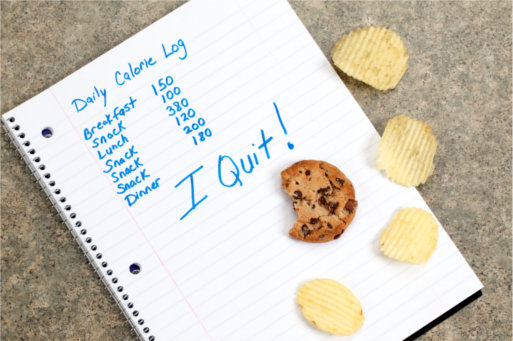 It might seem strange for me to say that “weight loss diets don’t work” when I run a cleansing and weight loss website which recommends a specific cleansing and fat burning program. However, let me explain…
It might seem strange for me to say that “weight loss diets don’t work” when I run a cleansing and weight loss website which recommends a specific cleansing and fat burning program. However, let me explain…
Over the past few years, I’ve talked with hundreds of people and received emails from thousands more who wanted to lose weight (as well as improve energy levels and general health/vitality).
Many of them went on to purchase diet plans, programs and supplements, often at high prices.
Quiz: Is Your Body TOXIC? Take the Test...
(get your free personalized report)
Most of these ‘dieters’ experienced some success and lost weight. Obviously some lost more than others, and the amount of weight lost depended upon a range of factors, including the specific diet plan or program they followed.
So if they lost weight, what’s the problem? Weight loss diets must work, right?
 Wrong.
Wrong.
When I go back and talk to people, weeks, months or even years later, many of them are still struggling with their weight, and some of them are even heavier than when they started (often having completed a number of yo-yo diets in the meantime).
However, a small percentage of people (around 20%) reached their ideal weight and have stayed there ever since. They look and feel great.
Why can some people maintain their results, while others yo-yo back and forward?
 Some would argue it’s down to genetics. For a minority of people this may be the case. But in my opinion it’s not the full story, and many people use this as an excuse, a cover-up, or an easy way out.
Some would argue it’s down to genetics. For a minority of people this may be the case. But in my opinion it’s not the full story, and many people use this as an excuse, a cover-up, or an easy way out.
Quiz: Is Your Body TOXIC? Take the Test...
(personalized report)
Diets Have Their Place
Firstly, let me be clear that I believe diets do have their place, and studies have shown that people are more likely to lose weight when they follow a specific plan or program (& make a time / money commitment).
I’ve been recommending the Isagenix Cleanse for the past five or six years, and have seen people achieve amazing results. Many of these people tried doing it by themselves, and found it difficult to maintain motivation, and create long-term habits on their own.
People are time poor nowadays, and for many a commercial weight loss program makes the diet much quicker and easier to follow because they provide meal replacement shakes, meals and supplements as part of the overall package. Basically, it’s convenient.
Also, when you have invested money in something, you are more likely to use it; and you are given a specific program to follow. If you decide to simply reduce calories and increase exercise, you have no roadmap to follow and can easily become unstuck.
3 Keys to Long-Term Weight Loss
 An interesting study by the Harvard School of Public Health took place which involved over 800 volunteers, who were randomly assigned one of four popular weight loss programs.
An interesting study by the Harvard School of Public Health took place which involved over 800 volunteers, who were randomly assigned one of four popular weight loss programs.
What happened? The average results across all the 4 plans were very similar, but individual results varied considerably. When following the same diet plan, some volunteers lost a lot of weight and some actually gained weight.
What does that show you? Success or failure is not necessarily due to the specific diet (although some diets are definitely better than others), but a range of other factors that can affect the results.
These are the key success factors I’ve identified, based on my experience and looking at the results of various studies and theories.
Habits vs. Quick-Fix
 In my opinion, the key reason for success vs. failure when it comes to losing weight and keeping it off is whether the individual is able to successfully make lasting changes to their diet and lifestyle.
In my opinion, the key reason for success vs. failure when it comes to losing weight and keeping it off is whether the individual is able to successfully make lasting changes to their diet and lifestyle.
In other words: are they able to break old habits and form better ones?
Often we’ve had our bad habits for quite a while, and our brain puts up a fair fight when we try to drop them.
There’s a myth out there that it only takes 21 days to form a habit, but this is wrong; it can actually take much longer than this.
Any diet that is very short or too extreme, and can’t be followed realistically for a long period of time, isn’t going to work. Yes, you might get short-term results, but you haven’t given yourself a chance to change the factors that caused you to gain weight in the first place.
Conversely, a diet plan or program that is simpler and encourages you to make small incremental changes to your diet and lifestyle will help you to gradually switch your bad habits for new ones, and make it much easier to continue even when you finish the diet.
The problem is, ‘selling’ new habits isn’t sexy; however, losing 10lbs in 7 days is. We all want a quick, easy fix – and that’s what we are sold.
I can’t stress how important this factor is. It is the single biggest factor in determining whether someone will lose the weight and keep it off, or continue on the yo-yo diet bandwagon.
It’s Emotional
 One of the most interesting things to come out of the study I mentioned above, is that the people who attended more group counselling sessions lost more weight and regained less of it.
One of the most interesting things to come out of the study I mentioned above, is that the people who attended more group counselling sessions lost more weight and regained less of it.
This is probably for two reasons:
- Social/Group Support
- Emotional connections to weight and food
Social/Group Support
Studies show that when people diet in groups and/or have the support of their friends and family, they get better results and will stick to it for a longer period of time.
Emotional connections to weight and food
Emotional connections to food can exist for a variety of reasons, including childhood or adult experiences you are hanging on to, your emotional state (e.g. foods you eat when you are upset), or underlying physical conditions/issues.
There is a great article on womentowomen.com about the emotional reasons behind eating and weight loss, which I would recommend reading if you think this could be a cause of your own personal weight management problems.
Toxic Body: The Impact of Environmental Toxins and Impurities
 Whilst controversial, and not accepted by many people in the mainstream medical community, many people believe that environmental toxins and impurities, and a sluggish detoxification system, can affect the body’s ability to return to its natural balance.
Whilst controversial, and not accepted by many people in the mainstream medical community, many people believe that environmental toxins and impurities, and a sluggish detoxification system, can affect the body’s ability to return to its natural balance.
The body can become overloaded if we consume too many foods with a high pesticide residue, fast foods, artificial additives, toxic drinking water and a range of pollutants and chemicals in our environment.
This can put a stress on the body’s natural detoxification pathways and inhibit the body’s ability to process and remove these toxins, causing weight management issues.
Do you agree or disagree? Leave your comments below…
